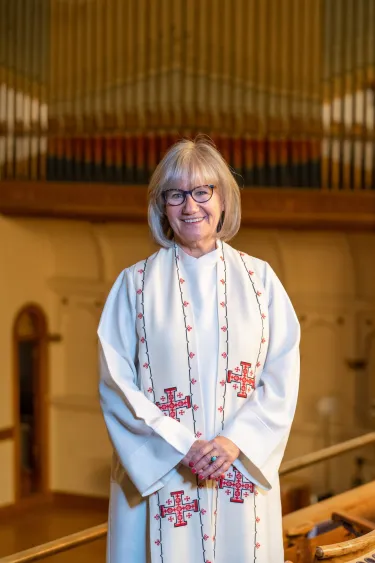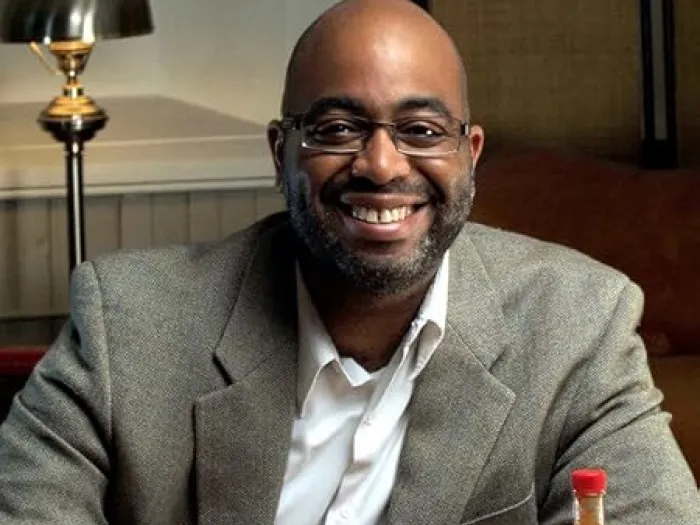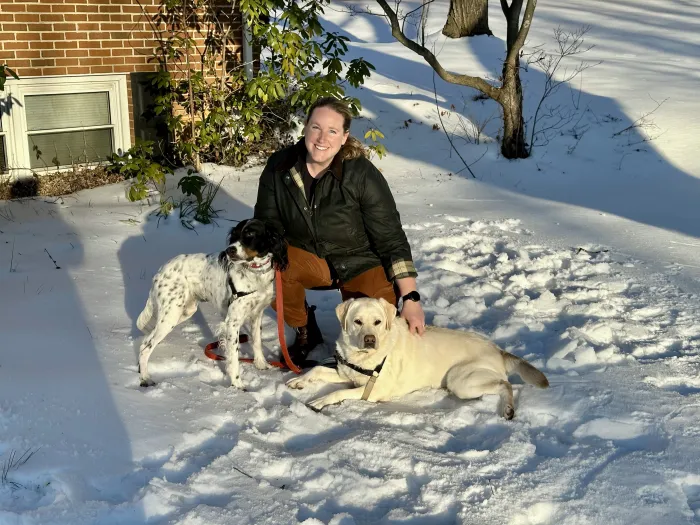Central Presbyterian Church in Denver says farewell to its pastor with music
The Rev. Dr. Louise Westfall will retire from parish ministry on Jan. 26 after 45 years of faithful service


How does a congregation bid farewell to a beloved pastor?
In the case of Central Presbyterian Church, located two blocks north of the Capitol in Denver, Colorado, it is by commissioning a cantata to be written and performed in her honor. The Rev. Dr. Louise Westfall, retiring from parish ministry after 45 years of faithful service, is not only the motivation for the composition, but also the subject of it. And, when it is sung during morning worship on Jan. 26 — her retirement Sunday — Westfall will be singing alto in the choir, as she does each week.
A cantata was the brainchild of Westfall’s brother, Jack, a longtime Central member and a tenor in the choir, and was quickly advanced by Charis Smith, the church’s Director of Music, when she observed composer M. Roger Holland II at an honors choir concert in which her daughter performed. Holland, Associate Professor of Music and Religion at the Lamont School of Music at the University of Denver, was guest-conducting.
“I’ve been reluctant in the past about programming my own work,” Holland said. “But this particular evening one of the five pieces I conducted was a spiritual that I had arranged.”
Both his music, and his work with the youth, made an impression on Smith, a professionally trained soprano with a long list of credits. She and Jack, who suggested most of the texts for the project, visited Holland in his office on the University of Denver campus. Then Smith and Central’s choir attended a concert Holland was conducting. The cantata was announced at the choir’s year-end party in May 2024, and the work began immediately.
Over the course of her career, Westfall has served five churches — rural, urban, and suburban — in Iowa, Michigan, Ohio, and Colorado. She loved and nurtured each of them, and they her, and they have all given generously to “This is the Day,” named in recognition of her favorite scripture, Psalm 118:24. “This composition specifically honors Louise,” Jack Westfall said. “But it is intended to honor all ministers — those in my family, whose combined service totals over 125 years — and ministers around the world.”
The cantata, written in four parts, traces the trajectory of Westfall’s life, with each movement representing a season in it. Growing up on the eastern plains in Yuma, Colorado, where her father, Tom, was a second-career pastor at First Presbyterian Church, Westfall experienced the meaning of “beloved community” through her family and her church. She was brought under the care of the Presbytery of Plains and Peaks, where her father was a member, as she followed God’s claim on her life.
Westfall recalls that she and her four siblings were reminded so often by their father that “To whom much is given, much is required,” she assumed it was a family mantra. It wasn’t until she got to Princeton Theological Seminary that she realized (to her embarrassment) that this was a passage from the Gospel of Luke.
All five Westfalls took the words to heart: Tom Jr. is a retired social worker; the Rev. Dr. Sue Westfall is General Presbyter for the Presbytery of Sheppards and Lapsley; the Rev. Dr. Mary Westfall is Relational Co-Leader for the Presbytery of the Coastlands; and Dr. John Westfall (Jack) is a physician and medical researcher. In addition to serving in five pastorates and numerous presbytery roles, Louise Westfall has co-authored two denominational Bible studies and served the Presbyterian Foundation as trustee. The siblings’ mother, Jane Cronin Westfall, was active in Presbyterian Women locally, was a member of the PW Coordinating Team, and served on what was then the General Assembly Mission Council.
The title of the first movement echoes the title of the cantata, “This is the Day.” It celebrates the guiding principle of Westfall’s life, that each day is a gift from God, to be approached with gratitude and thanksgiving. In fact, she greets her congregation from the pulpit each Sunday with the psalmist’s words: “This is the day the Lord has made; let us rejoice and be glad in it.”
In the second movement of the cantata, however, we are reminded that rejoicing is not always possible. Westfall, like most of us, has endured trouble and despair. A painful divorce, and a battle with endometrial cancer, invite the words of lament in Psalm 42:7: “Deep calls to deep in the roar of your waterfalls; all your waves and breakers have swept over me.” The orchestral accompaniment for this movement, in addition to various percussion instruments, includes three bassoons. “I tried to create ocean depths,” Holland said, “and to get those low notes, I needed two contrabassoons and a third bassoon.” This movement also draws from the writings on suffering of Julian of Norwich.
The third movement, which features a soprano solo, begins with the text of Matthew 9:37-38: “The harvest is plentiful … send out workers into his field.” It then employs the admonition of Lebanese-American writer and poet Kahlil Gibran in his poem “On Work,” with lines such as “work is love made visible.” These words, Westfall said, signify the important mission and outreach accomplished by each of the faith communities she served. The poet’s words were, according to Holland, the most difficult for which to compose. Both texts are especially fitting for Louise, who “works harder, and is always more prepared, than anyone in the room,” Smith says.
The fourth movement draws on Philippians 4:13, “I can do all things through Christ who strengthens me,” a text suggested by the Rev. Sue Westfall. Louise Westfall initially feared the words might sound boastful, before reminding herself, “It is through the power of Christ that difficult work can be done, by me and by my congregation.”
The cantata, which is about 20 minutes long, takes on the character of an African American spiritual for its finale. Holland, having worked across genres, came to the century-old Lamont School of Music, after graduating from Union Theological Seminary, to direct The Spirituals Project, dedicated to revitalizing and preserving the music created by enslaved persons in America in the 18th and 19th centuries. The genre is one of Westfall’s favorites.
Though retiring from pastoral ministry, Westfall will continue to serve the church — within the Presbytery of Denver, as guest preacher when the opportunity arises, and on the Board of the National Ghost Ranch Foundation. She will complete her term on the board of the Colorado Trust, a health equity foundation located in Denver. She hopes for more visits to her son, Paul, his wife, Claire, and their two young children in the Washington, D.C., area.
“I rejoice in the creation of ‘This is the Day,’” Westfall said. “I am deeply grateful for my life in ministry and the God whose presence continues to grace every day.”
Sherry Hester Kenney is a retired financial planner who holds a certificate in ministry from Austin Presbyterian Theological Seminary. She is a former Ministry Relations Officer with the Presbyterian Foundation and a current coach in the Foundation’s Church Financial Leadership program. She is a ruling elder at Central Presbyterian Church.
You may freely reuse and distribute this article in its entirety for non-commercial purposes in any medium. Please include author attribution, photography credits, and a link to the original article. This work is licensed under a Creative Commons Attribution-NonCommercial-NoDeratives 4.0 International License.




